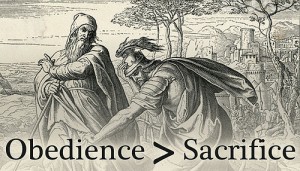bumbling through life
Quite
Unaware
I encounter a
T in the road
What to make of this T?
An impasse? The end of my road?
A signal I should QUIT?
Or does the T signal, not a Termination, but a Transition?
As I consider my options something Emerges, standing between me and that fateful T …
Exaltation of the King who rules my journey
Examination of my heart as part of my journey
Exploration of the King’s leading for the next stage of the journey
In fact, I discover the E is not just one thing, but many things
Yet it is not Everything
No, that is the Exclusive domain of my King
Him alone in that place between I and the T
Embracing Him as my Everything Transforms my journey
opening new options as I stand there before that great T in my road
there, with Him the T no longer demands I QUIT, but invites me to become QUIET
for, says my King, “in Quietness and in Trust is your strength” for this journey




